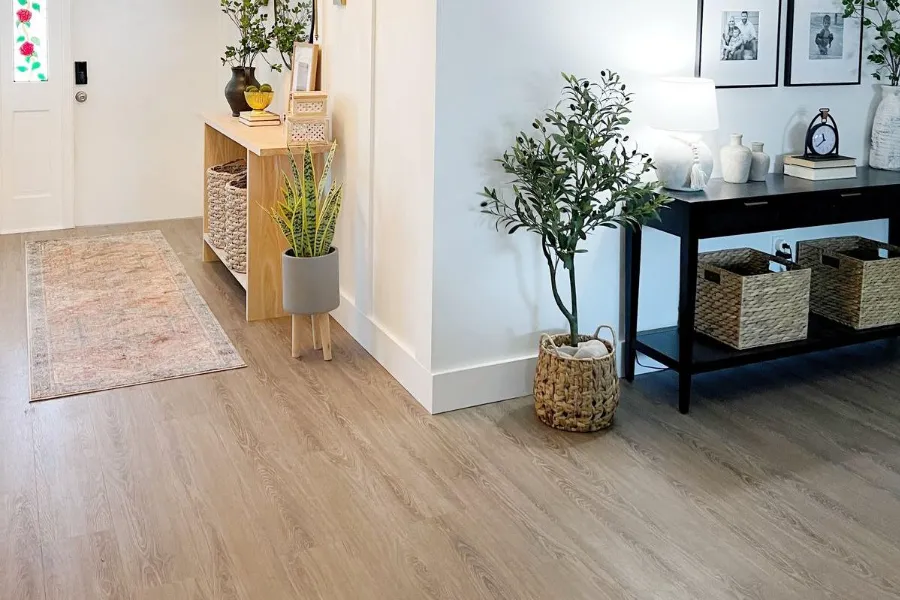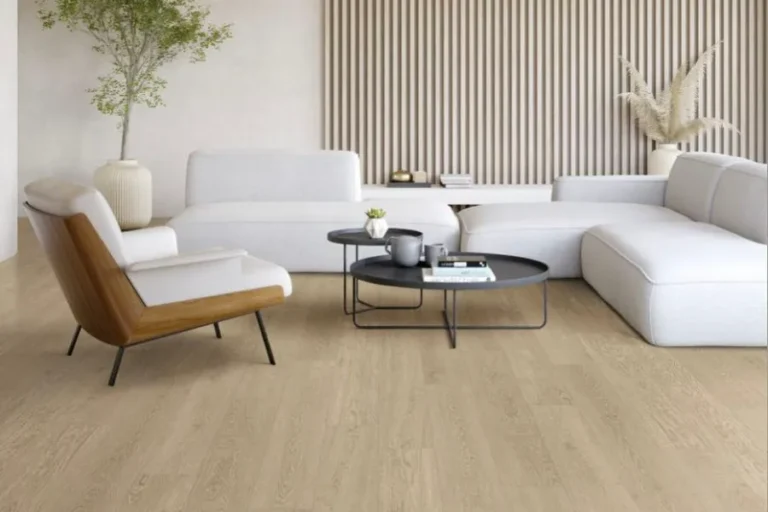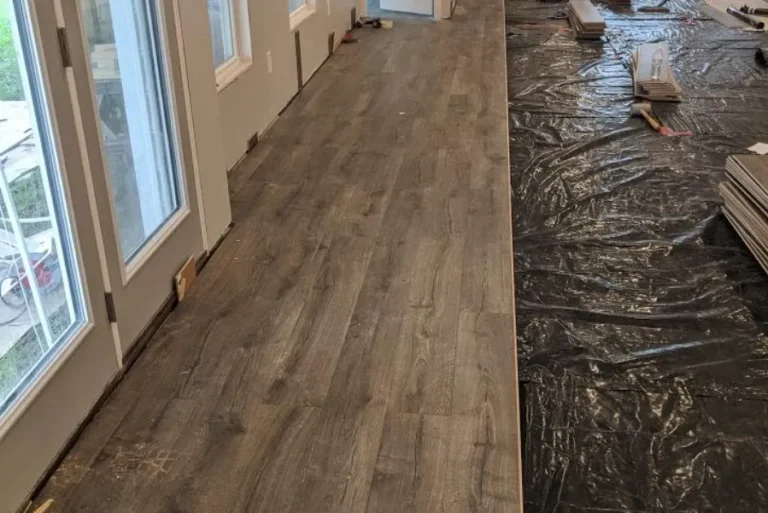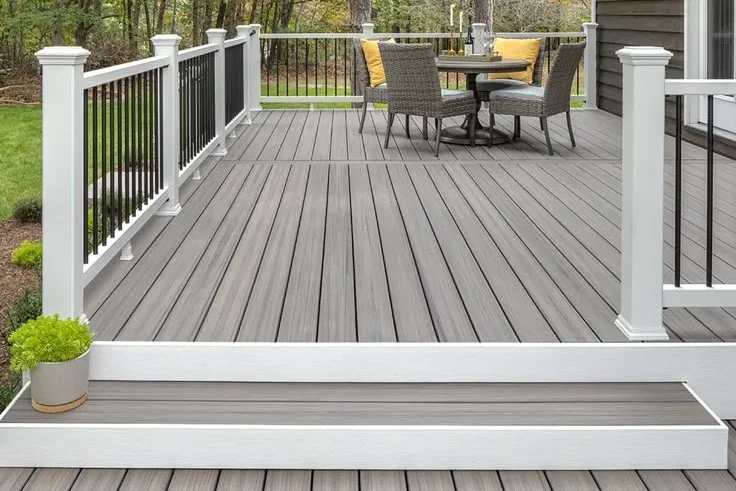When planning a home renovation, flooring is one of the most important investments to consider. Homeowners often ask: How long will vinyl flooring last? The answer depends on the type of vinyl you choose, how well it’s installed, and how you maintain it over time. Vinyl has become a favorite in American households for its budget-friendly price, stylish designs, and impressive durability. Let’s break down everything you need to know about the life expectancy of vinyl flooring.
Average Lifespan of Vinyl Flooring
On average, vinyl flooring lasts 10 to 25 years, depending on its quality and the conditions in which it’s used. Standard sheet vinyl or vinyl tiles may lean closer to the lower range, while luxury vinyl plank (LVP) and luxury vinyl tile (LVT) can last two decades or more. The protective wear layer on top is the biggest factor in determining longevity—thicker layers mean better resistance against scratches, dents, and wear from foot traffic.
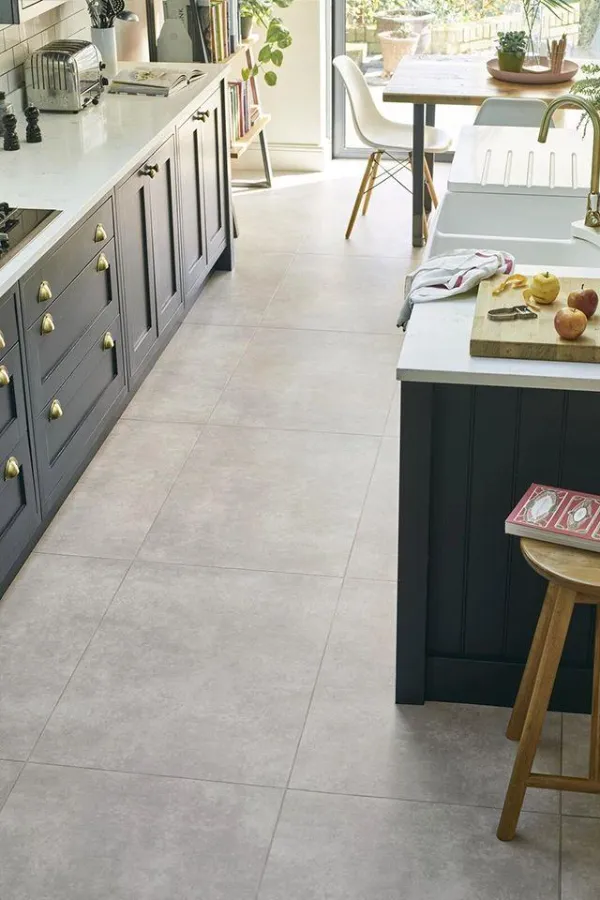
Factors That Affect Life Expectancy of Vinyl Flooring
Several factors influence how long vinyl flooring can hold up before showing signs of wear:
- Quality of the product – Cheap peel-and-stick options may not last as long as higher-end LVP with reinforced cores and thicker wear layers.
- Installation method – Poorly installed flooring can lead to gaps, curling, or peeling edges that shorten lifespan of vinyl flooring. Professional installation often extends durability.
- Foot traffic levels – A busy household with kids and pets will naturally put more strain on flooring than a low-traffic guest room.
- Exposure to moisture and sunlight – While vinyl is waterproof, standing water or excessive UV rays can still degrade it over time.
Types of Vinyl Flooring and Their Durability
Not all vinyl flooring is created equal. Here’s a breakdown:
- Sheet Vinyl – Typically lasts 10–15 years. It’s affordable and water-resistant but more prone to tears or dents.
- Vinyl Tile – Around 10–20 years. Offers versatility but may require more maintenance at the seams.
- Luxury Vinyl Plank (LVP) and Luxury Vinyl Tile (LVT) – Can last 20–25 years or longer with proper care. These premium options mimic wood or stone with remarkable realism and are built with thicker wear layers.
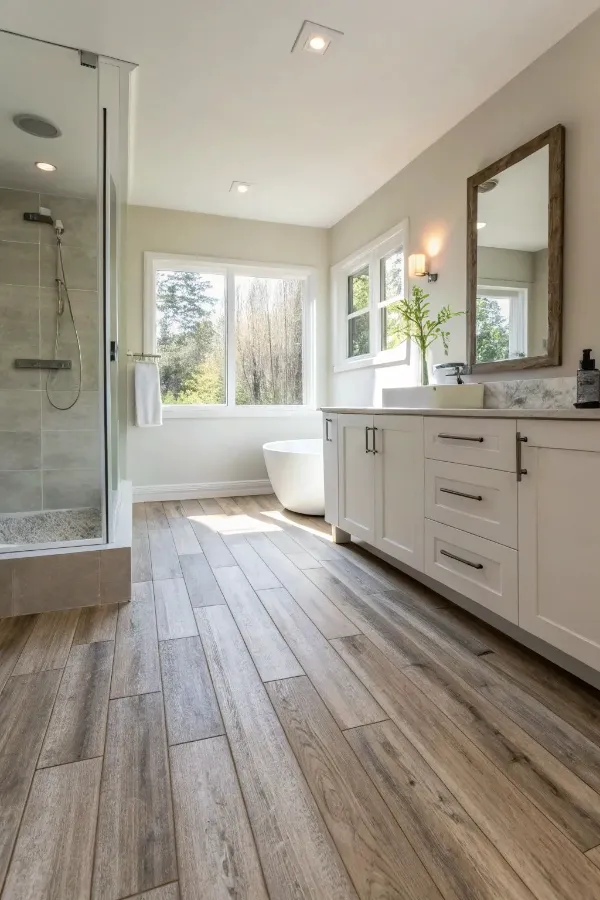
Maintenance and Care Tips to Extend Lifespan
Proper maintenance can easily add years to your vinyl flooring. Here’s how:
- Regular cleaning – Sweep or vacuum daily to remove dirt and grit that can scratch the surface. Mop with a vinyl-safe cleaner instead of harsh chemicals.
- Rugs or mats in high-traffic zones – Place mats near entryways and rugs in hallways to reduce wear in busy areas.
- Furniture pads – Add felt pads under chair and table legs to prevent dents or scratches.
- Sunlight control – Use curtains, blinds, or UV window films to prevent discoloration from direct sunlight.
These small habits protect the wear layer and keep your floors looking new for longer.
Signs Your Vinyl Flooring Needs Replacing
Even with excellent care, vinyl doesn’t last forever. Common signs it’s time to replace include:
- Cracks, splits, or peeling edges.
- Noticeable fading or discoloration.
- Deep scratches or worn-out wear layer.
- Persistent moisture damage beneath the surface.
When these issues appear, the flooring may no longer protect your subfloor effectively, making replacement the best option.
Comparing Vinyl’s Lifespan to Other Flooring Options
If you’re on the fence about vinyl versus other materials, here’s how it stacks up:
| Comparison | Lifespan | Key Point |
| Vinyl vs. Laminate | 10–25 yrs (both) | Vinyl is more water-resistant, better for wet areas |
| Vinyl vs. Hardwood | Hardwood 50+ yrs (with refinishing); Vinyl 10–25 yrs | Hardwood lasts longer, vinyl needs less upkeep |
| Vinyl vs. Tile | Tile 50+ yrs to lifetime; Vinyl 10–25 yrs | Tile is more durable but costlier and harder to install |
In short, vinyl provides a sweet spot between affordability, durability, and ease of care—especially if you don’t want the hassle of refinishing or sealing.
Final Thoughts
So, what’s the life expectancy of vinyl flooring? With standard options lasting 10–15 years and luxury products holding up 20–25 years or more, vinyl delivers impressive durability for its price point. Proper installation and routine maintenance play a huge role in maximizing its lifespan, making it a smart investment for homeowners who want style and function without breaking the bank.
If you’re still exploring, you may also want to compare vinyl with other flooring types like laminate or hardwood, so you can pick the best option for your lifestyle.

